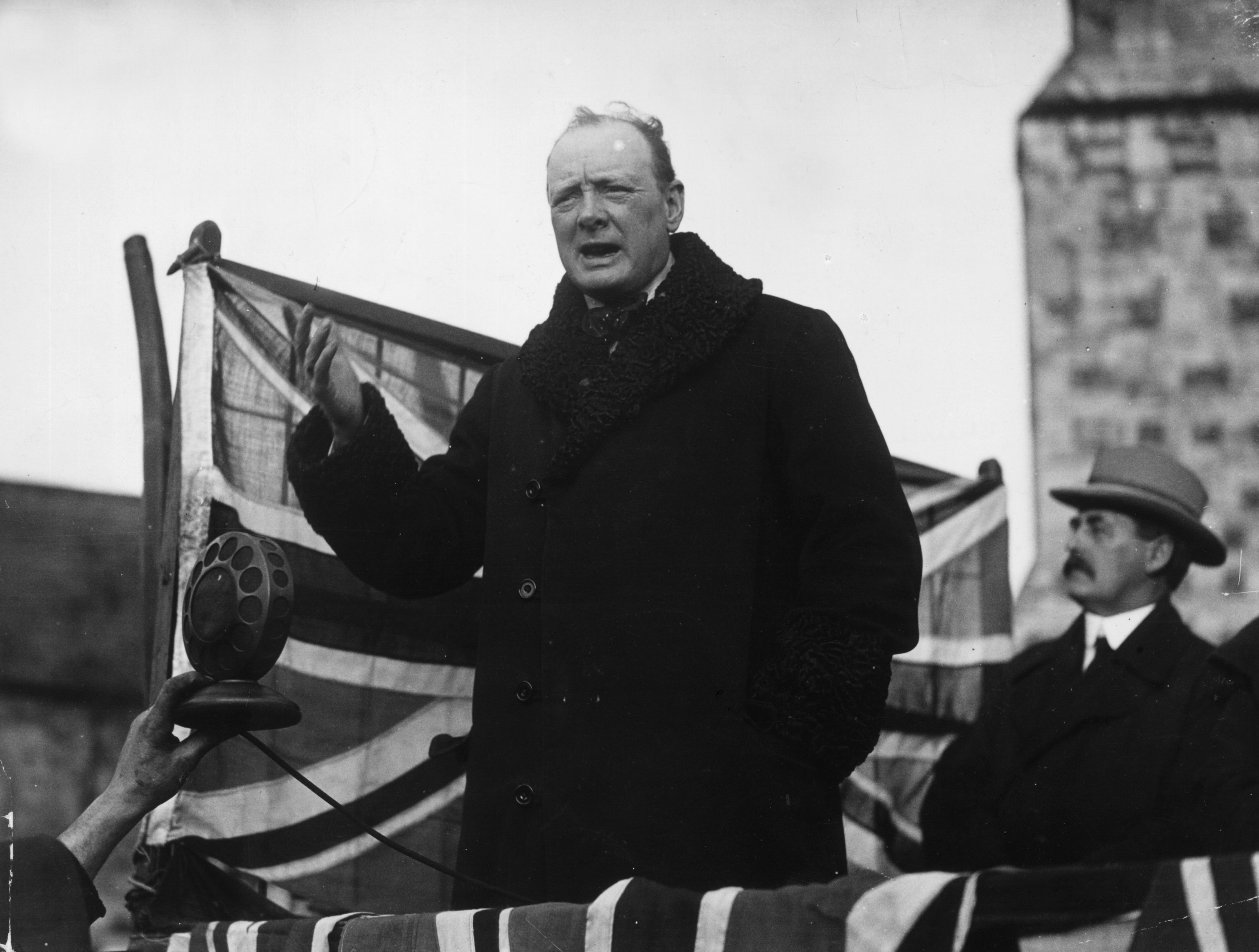In his ruthless demolition of Geoffrey Wheatcroft’s new Churchill biography in last week’s Spectator, the historian Andrew Roberts pours scorn on the ‘insinuation that Churchill had fascist leanings in the 1920s’ as it is not supported by ‘any actual evidence (for there is none)’.
Well, however justified his hatchet job of Wheatcroft’s book is in general, Roberts is deeply mistaken about Churchill and fascism. Like so many in the 1920s and well into the 1930s, from all sides of the political divide, Churchill was a fervent admirer of the former revolutionary socialist Benito Mussolini and the fascist movement which he founded in 1919.
Fascism was a nationalist rather than internationalist revolutionary movement whose class war was not the Marxist one between rich and poor but a different one between producers and parasites — of whatever social class. Thus to someone like Churchill, revolutionary fascism was not only preferable to revolutionary socialism, or communism as it later was, but also vital to its defeat.
To support Italian fascism was remarkably fashionable unless you were an intellectual. A clear sign of the huge global popularity of Mussolini and fascism was Cole Porter’s 1934 hit song You’re the top! from the musical Anything Goes which in one version included the lines ‘You’re the top! You’re the great Houdini! You’re the top! You’re Mussolini!’.
To support Italian fascism was remarkably fashionable unless you were an intellectual
As late as 1933, the year in which Hitler’s Italian-inspired Nazis came to power, Churchill described Mussolini in a speech that February at the Queen’s Hall in London as ‘the Roman genius’ and ‘the greatest law-giver among living men’. He added: ‘With the fascist regime, Mussolini has established a centre of orientation from which countries which are engaged in a hand-to-hand struggle with socialism must not hesitate to be guided.’
Even in 1937, by which time it was clear how bad Hitler’s version of fascism was, if not Mussolini’s, Churchill wrote an article on the Spanish Civil War for the American weekly magazine Collier’s entitled ‘The Infernal Twins’ in which he branded the ‘Nazi creed and the communist creed’ as ‘godless religions’. But still he could not resist heaping praise on Mussolini for ‘his extraordinary qualities of statesmanship, his magnificent courage and audacity, his untiring energy, his resolute will, his sure grasp of the possible.’
The sculptress and journalist Clare Sheridan, a cousin of Churchill’s via his American mother, who spent a lot of time in Italy, met Mussolini several times at the Grand Hotel in Rome which was his base for a short period after his seizure of power in October 1922. She wanted to do his sculpture; he wanted to seduce her. In her memoir of this time — In Many Places published in 1923 — she wrote:
Winston Churchill (who is talked of as the likely leader of the Fascisti party in England) says Fascism is the shadow of Bolshevism, and that if we must be ruled by one or the other, he would rather be ruled by Fascisti than Bolshevik violence.
This passage was cut from a later version of the memoir — To The Four Winds — published after the war in 1957. It is not clear whether the Duce succeeded in forcing himself on Sheridan back in 1922 but in the original memoir she is much more complimentary about him than in the post-war version in which she says that he had locked her in his hotel room and told her: ‘Vous partirez d’ici à l’aube, blessée et meurtriée’ which prompts her to comment: ‘I hated Mussolini to his death’.
Churchill met Mussolini for the only time in January 1927 when he was chancellor of the exchequer after a Mediterranean cruise with his son Randolf and brother Jack. Disembarking in Genova he wrote to his wife Clementine that ‘this country gives the impression of discipline, order, goodwill, smiling faces’ and that the fascists ‘have been saluting in their impressive manner all over the place’.
From Genova, Churchill went to Rome where he met Mussolini, first at his offices in Palazzo Chigi, and then at a reception in the British embassy. Before his departure, he shared a statement with a group of journalists in which he said of the fascist dictator that ‘anyone could see that he thought of nothing but the lasting good, as he understood it, of the Italian people, and that no lesser interest was of the slightest consequence to him.’
Speaking of fascist Italy, he said that it is ‘quite absurd to suggest that the Italian government does not stand upon a popular basis or that it is not upheld by the active and practical assent of the great masses’. Referring to Mussolini he added:
If I had been an Italian, I am sure I should have been wholeheartedly with you from start to finish in your triumphant struggle against the bestial appetites and passions of Leninism. But in England we have not yet had to face this danger in the same deadly form.
Not surprisingly Churchill’s statement caused a minor furore in Britain with Labour newspapers in particular accusing him of openly avowing the fascism of which they had long suspected him. The previous year, 1926, his wife Clementine had met the Duce when she was a guest of the British ambassador in Rome — Sir Ronald Graham, along with his wife Lady Sybil — and he had come to tea at the embassy. Her description of him in a letter on 20 March to her husband leaves the reader in no doubt about his electrifying effect on her and everyone else:
To which, five days later, Churchill replied curtly: ‘The description of Mussolini is [very] vivid. No doubt he is one of the most wonderful men of our time.’
Nicholas Farrell is the author of ‘Mussolini – A New Life’.







Comments